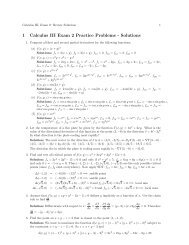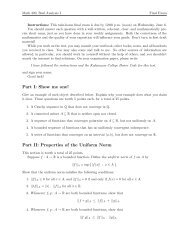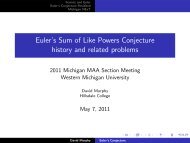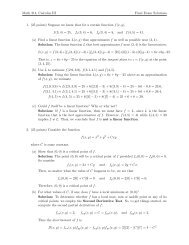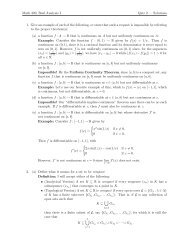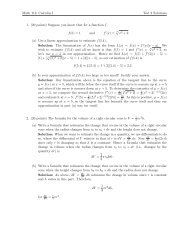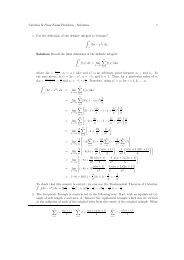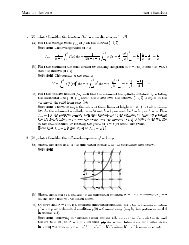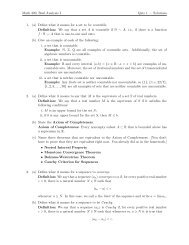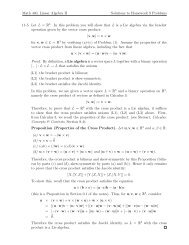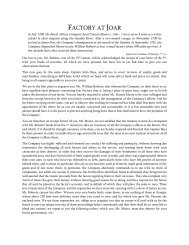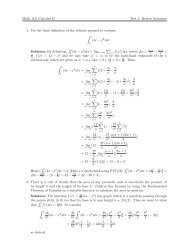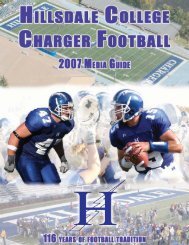Pym, JohnJohn Pym
Pym, JohnJohn Pym
Pym, JohnJohn Pym
You also want an ePaper? Increase the reach of your titles
YUMPU automatically turns print PDFs into web optimized ePapers that Google loves.
another, we might be brought to what scorn they pleased. A sermon was preached in the north before the King<br />
to make an agreement between Popery and our religion. The partition wall must be broken down, which was<br />
the Puritans. The Scots have been the first authors of all. Fifthly, by misguiding the King's approbation.<br />
The third foot: First, the discontent and sudden dissolving of Parliaments and punishing of Parliament men, all<br />
to affright us from speaking what we think. I will not mention the breach of privileges of old, but state<br />
instances in new; as Mr. Crewe's case, 1 who was committed for not delivering up the petitions of the House.<br />
The clerk is bound not to deliver up any petitions, nor so any Member. If there be no safety here, then nowhere!<br />
Secondly, a declaration which slandered our proceedings, as full of lies as leaves, for which I desire reparation.<br />
The King took it upon the credit of others; he never saw it. Thirdly, ingratiating of Papists and saying they are<br />
the best subjects for they contribute money to the war, which the Protestants will not do, so to bring the King<br />
in love with them. Fourthly, by moulding the Irish government into an illegal course, with intent to do so here.<br />
We ought to have interest with them. We are all the same subjects, and this is no new thing.<br />
The fourth foot takes military steps. First, by putting places of importance into the hands of Papists or suspected<br />
persons; as who were commanders in the last war. Secondly, power given to Papists to muster by commission.<br />
Thirdly, none more strong in arms than they, to whom their armour is delivered, contrary to the statute. Fifthly,<br />
their endeavour is to bring in strange soldiers from beyond the sea to be billeted upon us. Endeavours have been<br />
and haply are, but that means are wanted to do it. We have had no account of the Spanish navy coming here,<br />
which has caused great jealousies. Sixthly, now our fear is from Ireland. The Irish army is to bring us to a better<br />
order. We are not fully conquered.<br />
Lastly, the fifth foot: Papistical books that proceed from many active men who live here in London, and are<br />
agents; by whose desires, also, many monasteries, nunneries, and colleges have been erected here in London, for<br />
this foot has gone far. I move that there may be a settled committee to find out the danger the King and<br />
Kingdom are in.<br />
John Langton Sanford, Studies and Illustrations of the Great Rebellion (London: John W. Parker, 1858):301–303.<br />
1<br />
John Crewe (1598–1679), Member of Parliament for Amersham (1624–1626), Brackley (1626–1628, 1640), Banbury (1628–1629), and<br />
Northamptonshire (1640–1648). In 1640, Charles I committed Crewe to the Tower for refusing to surrender petitions sent him from his<br />
constituents.



